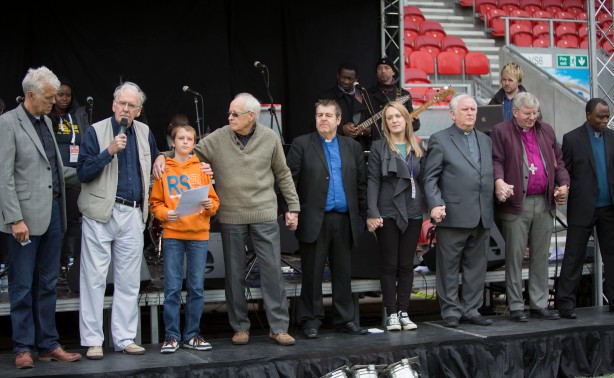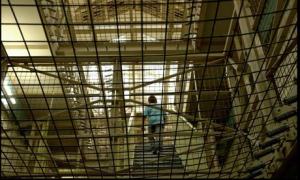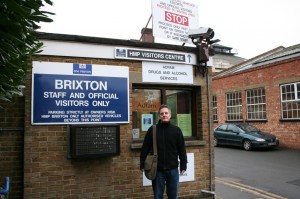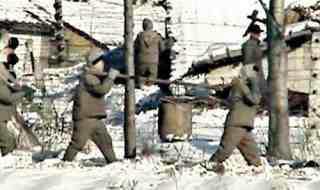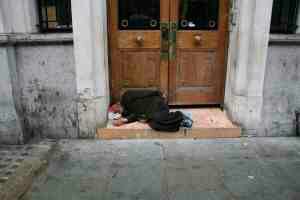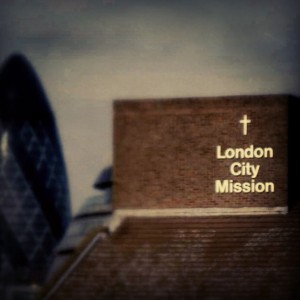I’ve been scratching my head since getting back from China wondering why English churches feel so strange, and it’s finally come to me. English churches are inside out.

I don’t mean that the carpets and pictures are in the wrong place, I mean the focus of the church is in the wrong place. I’ll try and explain.
Chinese home churches tend to feel small and vulnerable. Members are evangelists, trying to share the good news with as many people as possible. The church minister is often only a little better trained than the congregation and sees their main role to be encourager and cheer leader for the troops.
In the UK on the other hand the church leader tends to be vastly better trained than the congregation. The leader has probably worked as a volunteer for a couple of years, then spent three years learning Hebrew, homiletics, and history. They may have spent a further three years as a curate/assistant so by the time they get to lead the church they are very much a priest.
The priest is not a cheer leader. They are a teacher, a guru showering wisdom upon the drones who work hard all week to pay the priest’s salary. As a congregation, we turn up on Sunday exhausted and slump into seats waiting the reviving words of the teacher. We hope that there will also be a junior priest looking after our kids.
The junior priest (youth worker) may well be given free accommodation and a salary of £20,000 per year to look after 10 teenagers. The cost per teenager might be as high as £3000 per kid per year. The church’s expenditure on the other 30,000 kids who live in the area is negligible.
In this model of church we have priests providing services tailored to a few paying customers, whilst the 92% who never go to church remain largely untouched.
Church has become a service centre for busy Christians. It has become inward looking, centred around a single priest. Instead of employing a youth worker to train the kids to evangelise the district, we have a youth worker filling in the gaps that busy Christian parents have left in parenting our kids. Instead of reaching out to the local council estate we say that “we don’t feel moved by the Spirit” to reach that group and ignore them with our leafleting for Christmas Carol Services.

I’ve talked to some of these priestly church leaders about trying to remedy the situation, “What about the Polish, the elderly, the council estate kids close to our church?”
The answer is a look of despair. “Brother”, they say, “I’d like to do more, but I am short staffed, I need to prioritise my preaching preparation time, and then I’ve got two couples on the edge of a marriage break up. On top of that my senior elder is annoyed that his son isn’t getting enough attention from our youth worker, and eight of my best, most able members have just left to join a church plant in Suburbiton. How am I meant to start a new ministry to the elderly, or the Polish, or the council estates, when I can’t even look after my own flock? Brother, you are weighing me down with burdens. Surely we pay London City Mission to look after the needy, so you look after that lot, and I’ll struggle on with caring for my congregation.”
It’s hard to argue with the poor Church minister so I’m going to let Paul do it. In his letter to the Ephesians chapte 4, Paul says this,
“11 And he himself gave some as apostles and some as prophets and some as evangelists and some as pastors and teachers 12 for the equipping of the saints, for the work of the ministry, for building up the body of Christ”
He didn’t say, “and he gave the body of Christ to pay for the important ministry workers”.
He didn’t say “and he gave pastors and teachers for the work of the ministry and to keep an eye on the body of Christ”.
He said that the church leaders are to be equippers, cheer leaders, encouragers to get the Church doing all the ministry.
The “priest” is the worst person to be doing all the ministry. They haven’t worked in the real world for years. The people who are out in the real world need to be doing the ministry.
The church is inside out. Rather than having an inward looking church huddled around a priest for survival, we need an outward looking church, reaching out to the lost, and our pastors and teachers need to be our equippers, our mobilisers. Instead of employing young pastors to keep our kids on the straight and narrow, we need to employ evangelists to train the kids to reach out into the community. The best way to deal with young doubters is to turn them into young evangelists. When one of our church’s young people thinks up the idea of starting a “football ministry” for kids on the council estate the church minister shouldn’t be rolling their eyes to the sky with thoughts of the effort, but encouraging them and getting a couple of Dads engaged in the project. When the students want to get involved with ministry to the homeless, it should be encouraged, and telephone numbers provided for the Christian shelter where church members regularly volunteer and run Bible studies. When the mums group wants to start an outreach to the elderly widows in the community it should be helped with offers of the church premises and a rota for providing the less mobile a lift to church on Sunday. The minister shouldn’t be running any of these ministries, but they should be engaging with their church members, getting them to do what they are good at, and encouraging them from scripture to reach out with both Christian love and the Gospel that Jesus Christ is our risen Lord.
We need to turn our church’s back inside out. One way is to plant a new church which is tiny and vulnerable like the Chinese church. Another is to challenge our idols that leave us so terribly “time poor”. That is the subject of another blog
